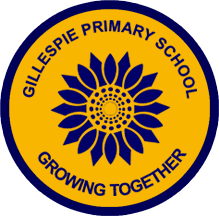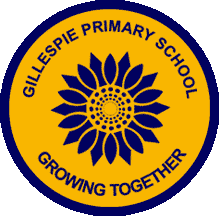This has been influenced in part by the research of a number of educational experts, namely, Dylan William, Paul Black, Carol Dweck and Shirley Clarke. The research highlights the importance of pupils being active participants in the learning process. A culture of active learning sees teachers and children as partners.
Active learning has maximum impact within a school culture that promotes a ‘growth mindset’, where intelligence is viewed as something that can be increased through hard work and effort. A ‘growth mindset’ encourages a ‘can do’ approach to learning where ability is not seen as fixed. Instead children are motivated to have a go, take risks and are not afraid to make mistakes but rather they are willing to embrace new challenges. Children are supported in being resilient, persistent and confident learners.
At Gillespie we engage children as active partners in their own learning through a range of learning and assessment strategies which foster deeper learning and enable children to make rapid and excellent progress. This is achieved by involving children dynamically at all stages in the learning process.
How do we achieve a strong learning culture?
‘All learners need self-belief and the ability to reflect on how they learn for that learning to be successful’, Shirley Clarke 2011
Within the school we aim for all staff to use the language of a growth mindset which focuses on improvement and achievement rather than on a fixed notion of ability. Children are praised for demonstrating positive learning dispositions e.g. being curious, using their imagination, persevering, being cooperative, achieving/ understanding more, rather than closed statements about ability, e.g. you are clever. We have found that using this language motivates children to try harder and to have a more positive approach to their own learning.
Children from nursery to year 6 have been involved in designing and creating animals to help all of us remember the characteristics of learning. These animals are displayed in all classrooms and around the school.
We use a range of methods to support and develop a strong learning culture.
At the beginning of each term the children are involved in discussing and planning aspects of the terms work. This gives them ownership; motivating and engaging them right from the start. It also provides the teacher with valuable assessment information in finding out what children already know and can do in order to plan the terms new learning.
In every lesson children are given:
- Clear and specific learning objectives and success criteria which makes explicit the purpose of the lesson and what steps are necessary to acquire the relevant skills, knowledge and understanding. Success criteria are either given to the children or elicited from them as the lesson develops. Children become more sophisticated learners when they are able to explain precisely what they need to do in order to be successful.
- Opportunities to respond to effective questioning from the teacher which can extend or deepen thinking or rectify misconceptions.
- Effective feedback and support at key points which facilitates them moving forward and making improvements in knowledge, understanding and skills.
- Time to reflect on their own learning and that of others through self and/or peer assessment. This can be oral feedback or written feedback in books. Children may be given time to respond to teacher’s marking at the start of the lesson to inform what they have to do to take the next steps in their learning. This can include children editing and improving their work.
- Regular opportunities to reflect and discuss aspects of their learning with their weekly talk partner. This promotes oracy, develops social skills, engages all children and provides thinking time to allow quality responses.
‘Children need thinking time after a question is asked add discussion time and you double the impact’, Shirley Clarke
The Learning Journey
In class, children are given regular opportunities to review their ‘Learning journey’. This valuable time gets children reflecting upon and discussing aspects of class work with the teacher. This also provides time for children to share new ideas. Reflecting on prior learning helps inform teachers’ planning for the next period and sustains children’s ownership of learning throughout the term.



